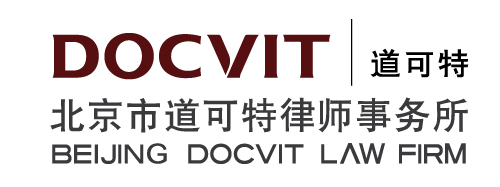Determining a civil party’s qualification as a shareholder is the primary consideration of the courts in China and a definitive factor when disputes arise over capital contributions, the exercise of shareholders’ rights, equity transfers and resolutions of the shareholders’ meetings.

Partner
DOCVIT Law Firm
This article intends to analyse the issue concerning the definition of a dormant shareholder and of a shareholder’s qualification by balancing the legitimate interests of all parties based on theory and practice.
Under usual circumstances, shareholders registered with industrial and commercial authorities are the actual capital contributors or those who succeed in purchasing equity in a company, according to the law, with the name of the person registered consistent with the actual shareholder.
However, in reality inconsistency occurs and, in such situations, dormant shareholders are involved. At present, the relevant laws and regulations in China do not effectively define the meaning of dormant shareholders and parties have their own views. However, the core definition of dormant shareholders refers to those who invest a certain amount of capital in a company during its establishment or operation without their names being published in the company’s articles of association, register of shareholders or industrial and commercial registration, falling within the category of a nominee shareholding.
Therefore the connotation of the dormant shareholder should include the following elements:
-
- The dormant shareholder exists due to certain reasons that cannot contradict the authority and prohibitions of the law;
- There is an anonymous investment agreement (oral or written) between the dormant shareholder and the nominee shareholder;
- The dormant shareholder is the capital contributor;
- No information about the dormant shareholder is indicated in the explicit terms defining the shareholders of the company, including the name.
The reasons why dormant shareholders choose to remain anonymous in practice are complicated, but the main one is that the investment subject will benefit. This method allows the capital contributor to avoid legal restrictions on the investment subject or other considerations. Capital contributors want to remain anonymous due to various factors such as protecting their identity, economic status or information security. They tend to remain anonymous to avoid the obligation of a bailout to third parties, or to circumvent the dormant shareholder’s own restrictive factors (such as the financial institution of a shareholder’s qualification, foreign investment policy restrictions, and non-compete limitations).
In addition, dormant shareholders may enter into a nominee shareholding agreement to circumvent mandatory legal provisions, such as restrictions on the number of shareholders in the company, associate transactions and certain investment fields. Socio-economic development has also led to the emergence of anonymous investment. By absorbing idle funds in society, the anonymous investment also enriches the capital operation of the company, thus promoting socio-economic development.
However, the anonymous investment may lead to perils for a company, which are divided into two categories, i.e., external legal risks, mainly involving disputes with third parties, and internal legal risks, regarding the allocation of rights and obligations between the dormant shareholder and the nominee shareholder. For the dormant shareholder, the largest potential risk is determining a shareholder’s qualification. If the nominee shareholder makes an unfavourable corporate decision affecting the actual contributor – such as a malicious transfer of equity, even though the dormant shareholder and the nominee shareholder have signed an anonymous investment agreement – the internal agreement cannot be used against the bona fide third party, according to the law. Therefore, the bona fide third party’s act is still valid. The actual contributor can obtain his or her qualification as a shareholder and exercise the shareholder’s rights only through an action for affirmation. If the court does not recognise the agreement between the dormant shareholder and the nominee shareholder, it can only be treated as a debtor-creditor relationship.
In the case of determining the shareholder qualification of dormant shareholders, the relevant laws or guiding opinions are incomplete and unclear, making it difficult for courts to find common ground in judgments. Since the content of the guiding opinions formulated by the courts at all levels differ greatly, coupled with their limitations, it is difficult to ensure the legal validity of the judicial trials.
Besides, due to the differences in determining the relevant issues by the courts in various places, different or even contradictory results may occur in the judgments. If the nominee shareholder has external liabilities, his or her creditor has the right to apply to the court for judicial conservation or enforcement of the nominee shareholding based on the principle of the Rechtsschein theory of a shareholding registration. Moreover, it can be seen from the current judicial precedents that between the property rights of the nominee shareholders and their creditors’ litigious rights, courts prefer to protect the rights and interests of the creditors.
To sum up, anonymous investment may raise great legal risks for the dormant shareholder, and the best way to prevent these risks is to register the shareholding in a timely, legal and standardised manner. If the anonymous investment is indeed needed, it is suggested that the actual contributor carefully select the nominee shareholder, fully conduct a credit investigation and sign a written nominee shareholding agreement. The actual contributor should keep the capital contribution certificate in a safe place, and participate more in the decision-making and management of the company to prevent the risk of non-recognition of their shareholder identity. What’s more, the actual contributor should also determine whether the purpose and actual use of each bank transfer with the nominee shareholder is for the purchase of the company’s equity.

In addition to the internal standardisation and improvement of the company, the government should introduce corresponding regulations and guidelines as soon as possible to unify the operating procedures and create a better business environment.
Yu Hong is a partner at DOCVIT Law Firm

DOCVIT Law Firm
56/F Fortune Financial Center
No.5 East Third Ring MiddleRoad
Beijing 100020, China
Tel: +86 10 8586 1018
Fax: +86 10 8586 3605-8006
Email: yuhong@dtlawyers.com.cn





















